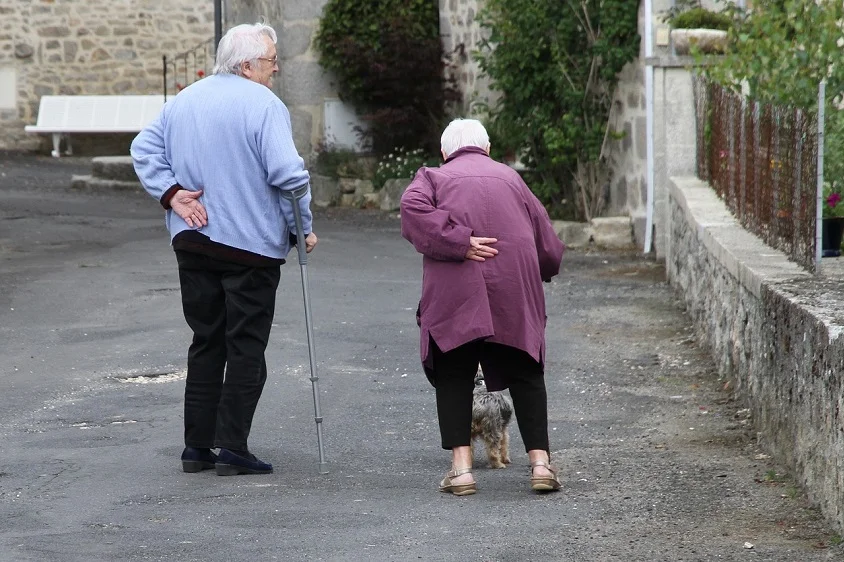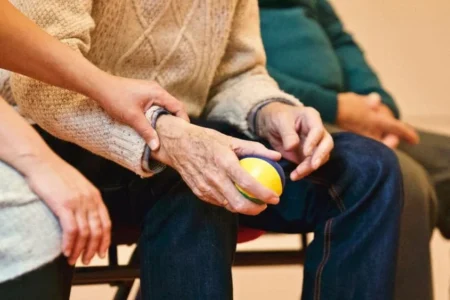How to Cope With Bodily Changes as You Get Older
- Updated on: Apr 29, 2025
- 2 min Read
- Published on Apr 29, 2025

Aging is a natural part of life, but that doesn’t mean it’s always easy. As we get older, our bodies change in ways that can sometimes feel frustrating, confusing, or even alarming. From changes in skin elasticity to shifts in metabolism, muscle mass, and energy levels, aging brings a variety of new experiences. The key to thriving as you age lies not in resisting these changes but in adapting to them with grace, resilience, and smart strategies.
Understand What’s Normal
The first step in coping with bodily changes is understanding what is a normal part of aging. Some common changes include:
- Thinning skin and loss of elasticity
- Reduced bone density
- Slower metabolism leading to weight gain
- Changes in vision and hearing
- Reduced muscle mass and strength
- Increased fatigue or changes in sleep patterns
By recognizing that these changes are normal, you can better prepare mentally and emotionally, avoiding unnecessary worry.
Prioritize Movement
One of the best ways to adapt to bodily changes is to keep moving. Regular exercise helps maintain muscle strength, flexibility, balance, and cardiovascular health. Activities like yoga, swimming, or even brisk walking can be especially beneficial. If you’re unsure where to start, consider working with a fitness professional who specializes in programs for older adults.
Strength training, in particular, is crucial. Lifting weights or using resistance bands can help counteract the natural loss of muscle mass and improve bone density, reducing the risk of osteoporosis.
Nourish Your Body Wisely
Your nutritional needs change as you age. It’s important to focus on a diet rich in fruits, vegetables, lean proteins, healthy fats, and whole grains. Staying hydrated is equally important, as your sense of thirst may diminish over time.
Supplements can also play a role. Many older adults benefit from additional vitamin D, calcium, and omega-3 fatty acids. If you’re looking for innovative wellness support, you might explore options like Auragens, which offers targeted stem cell therapy solutions designed to help combat the signs of aging.
Practice Mindful Self-Compassion
It’s easy to feel critical of your body as it changes, but self-compassion is a vital coping skill. Instead of focusing on what your body used to do or look like, try to celebrate what it can still do today. Mindfulness practices, such as meditation or journaling, can help you stay connected to your body in a positive, loving way.
Additionally, mental health professionals can provide strategies to cope with feelings of loss, frustration, or anxiety related to aging. Therapy or support groups can be incredibly affirming spaces where you can process your experiences without judgment.
Embrace New Beauty Standards
The beauty industry often glorifies youth, but aging brings a unique beauty that deserves celebration. Wrinkles, silver hair, and other changes are physical representations of a life lived fully. More and more, we’re seeing movements that encourage people to embrace aging naturally, rejecting the notion that youth is the only standard of beauty.
Updating your wardrobe, skincare, or even hair color to reflect your evolving identity can be empowering. Choose styles and products that make you feel confident and authentic rather than trying to “turn back the clock.”
Stay Socially Engaged
Maintaining social connections is crucial for emotional and physical well-being. As your body changes, having a supportive community can provide encouragement, laughter, and motivation. Whether it’s through clubs, volunteering, religious groups, or simply spending more time with friends and family, staying socially active can greatly enhance your quality of life.












